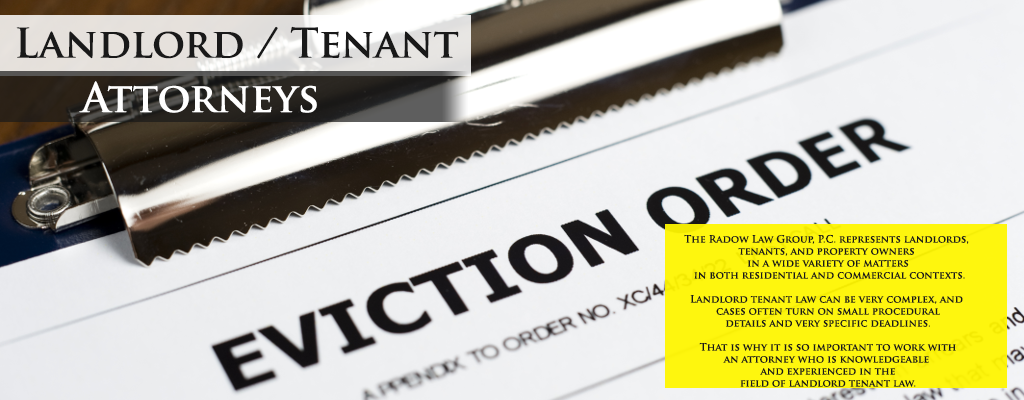Landlord / Tenant Lawyers

The Radow Law Group has significant experience representing landlords in a variety of circumstances in both the residential and commercial contexts. We represent landlords throughout New York in a wide variety of matters in both residential and commercial contexts. Landlord Tenant Law can be very complex, and cases often turn on small procedural details and very specific deadlines. That is why it is so important to work with an attorney who is knowledgeable and experienced in the field of Landlord and Tenant Law.
Our Services
- Lease drafting, review and negotiation
- Commercial Evictions (Holdover and Non-Payment)
- Residential Evictions (Holdover and Non-Payment)
Locations We Cover
- Nassau County, NY
- Suffolk County, NY
- Westchester County, NY
- Queens, NY
- Brooklyn, NY
- Bronx, NY
- Great Neck, NY
- Manhattan, NY
Frequently Asked Questions
landlord services
How long does it take to evict someone in Nassau County?
Eviction in Nassau County typically takes about three to six months, depending on court schedules, tenant responses, and whether the tenant contests the eviction.
How do I file a lawsuit against a landlord?
To file a lawsuit against a landlord, gather evidence of the dispute, file a complaint in the appropriate court, serve the landlord with legal notice, and prepare for a court hearing where you present your case.
What are my rights as a tenant in NY State?
As a tenant in New York State, you have rights, including safe and habitable housing, protection against unlawful eviction, the right to withhold rent for repairs, and the right to privacy and fair treatment under the lease agreement.
How long can a tenant stay without paying rent?
In New York, a tenant can stay without paying rent until the landlord completes the eviction process, which can take several months due to legal procedures and tenant protections.
How can Radow Law Group help you in eviction?
Radow Law Group can assist with eviction by providing legal advice, preparing and filing necessary documents, representing you in court, and ensuring the eviction process complies with all legal requirements.
